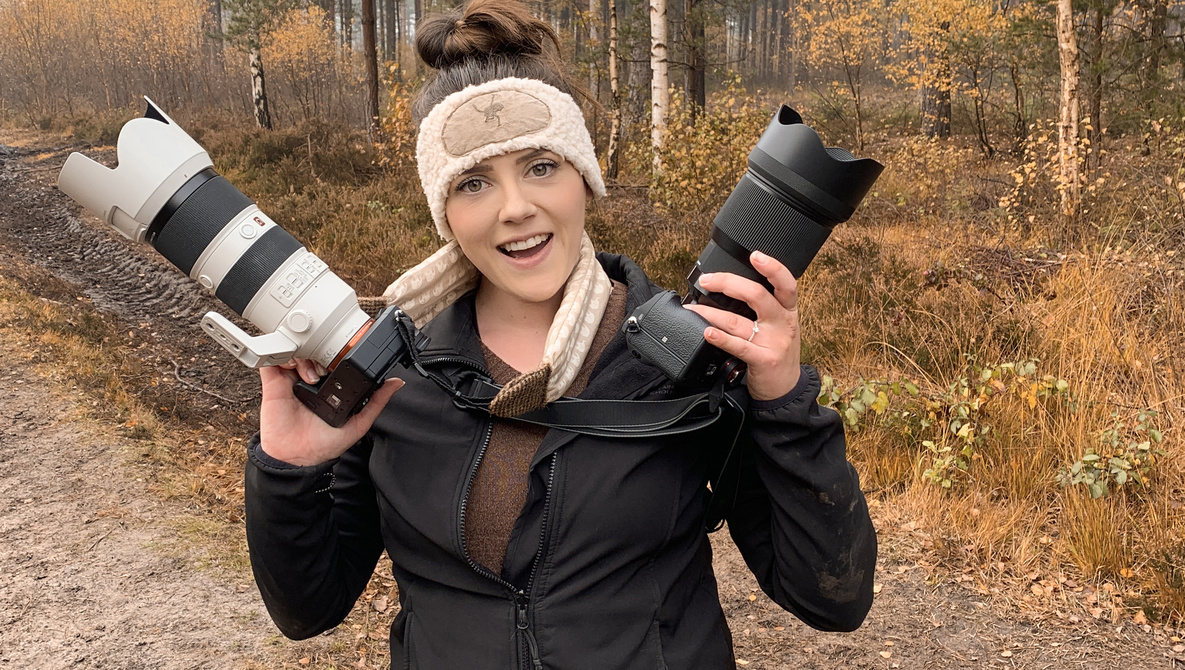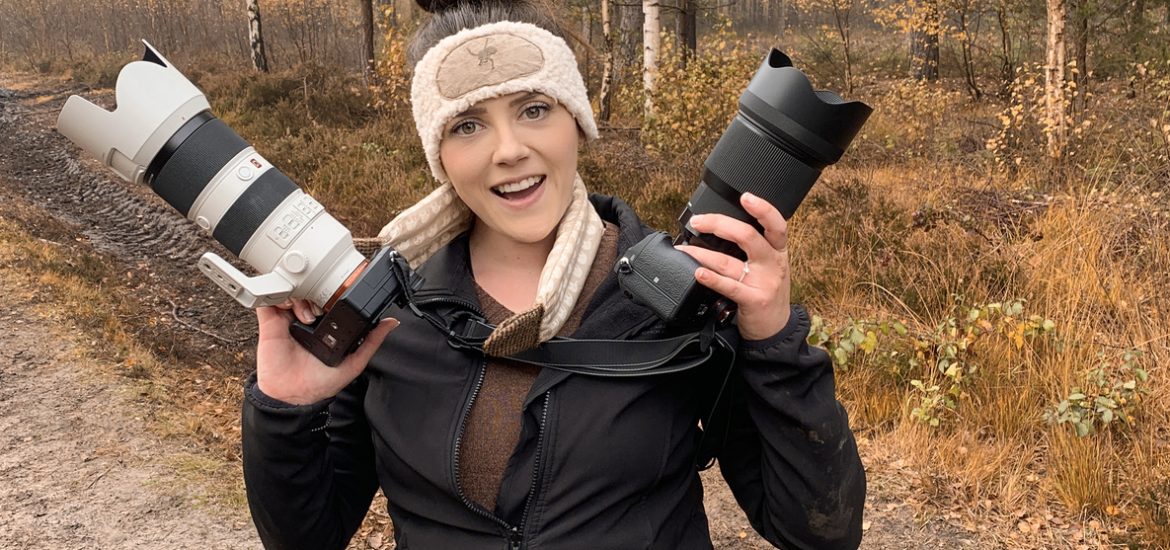
COVID-19 has brought 2.7 million deaths worldwide so far; poor mental health kills 8 million every year. Jessica McGovern talks about her own struggles and helping other photographers.
The Two Sides of Mental Health in Photography
A distraction from daily life, photography gets us outside into nature, it helps us to socialize, it is creative, and photographs are an achievable goal. All those things can help improve the health of our minds.
Because of this, Jessica McGovern’s presentation at The Photography Show (see my previous article) revealing the other side of the story came as a shock. She shared evidence that those working in our industry have more than double the likelihood of suffering from their mental health.
Photographic businesses can be stressful, and that stress can develop into other mental health issues. Furthermore, over the last year during all the coronavirus turmoil, having no income has added extra pressure for many.
Breaking the Taboo
Unbelievably, discussing mental illness is still anathema for many. Worse than that, I’ve come across a few uneducated people with bigoted views who turn against people suffering from their mental health. But it’s something we need to be open and caring about to help prevent suffering and those needless deaths.
Speaking with Jessica, I asked her if she struggled to become so open about her own battles:
Yes, definitely. I’ve a long and complex mental health history starting with my first therapy session, aged 11 and continuing throughout my teen years and early 20s. I had various diagnoses and treatments.
She saw first-hand the mental health pathways in the UK, moving up through the hierarchy from the community mental health team to seeing the regional psychiatrist. She told me it was all in hushed tones, with no openness:
It’s so much of a taboo subject (which, thankfully, is breaking now!). So, you think that if you talk about it, or reach out, you’re somehow weak or broken, or worse, ‘attention seeking.’
Jessica finds that admitting that things aren’t as perfect as we usually show to the world is liberating. She says that’s the first step to healing. Becoming open about her own battles started after losing one of her students to suicide:
I remember at that point the community and I just started being really honest. The volume of people who were suffering silently became clear. Nobody felt alone then, and we were all stronger for it. Now, it’s obvious to me that being open about it in a constructive way is helpful, not just for me, but for others too, and that’s awesome!
In Business
We then talked about what aspects of her photography business she finds the most stressful. For her, it’s the pressure she puts on herself to create award-winning work every single time she picks up a camera; Jessica won the MPA Pet Photographer of the Year 2020.
That just isn’t possible! I apply all this pressure and end up creatively stifled as a result, so it’s a downward spiral really.
This probably rings true with many photographers and creators. Research has shown that stress and depression block creativity. Consequently, having too high expectations of ourselves can lower mood, which will, in turn, adversely affect our creative results. It becomes a vicious circle.
Also, the weather!
When Jessica told me this, I nodded in agreement; just this week, I had to call off some photographic work because of the rain.
England and outdoor location shoots can be a bit of a nightmare sometimes; the most I’ve had to reschedule is six times because of heavy rain, named storms, and gale force winds!
Then, what Jessica said was the least stressful aspect of her business took me by surprise.
It is the sales sessions. I genuinely really enjoy them and so do my customers, which I think is a bonus. They say they feel like they are really being taken care of, and that is nice.
Jessica never applies any sales pressure and never feels any from the client. They sit together and laugh and cry at the images. Then, she helps them work through their ideas and picking the right products for their home. For Jessica, it’s a really rewarding part of the entire process.
Also, just having a camera in my hand helps me. I feel confident and capable when I have a camera with me, so if everything else is going wrong, I’ll head out with a dog and a camera and just see what we end up with.
In the Studio
She finds studio photography particularly calming as everything is under her control:
I can think of a concept then build the set, the lighting, the vibe, then shoot and edit. The problem-solving nature of photography is like therapy for me; it’s something I’m hoping to do much more of in the future.
I asked her about all the computer work involved with digital photography, as information technology has been shown to impact negatively on mental health. Jessica admits that she spends more hours than most in front of a screen. Additionally, now that she also teaches and produces digital content, she can be at her desk from anywhere between 6 and 14 hours a day. She admits it is not good but has methods of mitigating the impact of the computer work.
I have a Spotify subscription, and I work with mellow, soothing music, scented candles, and cups of tea.
Jessica believes it’s so important not to focus on the technology itself, but what that is taking away from life. She says to ask yourself whether spending that much time at the screen is causing more social isolation.
Is it enriching your life? Is it beneficial? Those are important questions that I think everyone should answer honestly.
Jessica has talked about photographers contacting her with their experiences. She is clearly giving support to photographers suffering from their mental health. This is a huge responsibility, and others must be grateful for all she has done for them.
I don’t really think of it as a responsibility because I am not in control of how another person thinks or feels; I am in control of how I react to that, for sure. But, all I am doing is being there to lean on.
She stresses that she is not a trained mental health professional. But if the situation is at a crisis point, she provides resources and supports the information.
What happens next really is out of my hands. I think that everyone who is struggling with their own demons thinks they are alone — I sure did — so if I can help someone feel less alone and maybe help them to help themselves, that can only be a good thing.
We finished by chatting about her personal photography, and I asked whether she took photos for fun.
Yeah! I like to have a personal project or two on the go at any one time. If I’m shooting for me, I like to push myself more, so I have to learn a new skill or problem solve in the process. My current two projects are exciting but secret at the moment. Sorry!
Jessica McGovern’s work
Jessica deserves a great deal of thanks for all her time and the support she gives to those who need it. Please do take a look at her website, subscribe to the photography tutorials on her YouTube channel, and follow her on Instagram to see her award-winning pet photography.
Do You Need Help?
If you are struggling with your mental wellbeing, please do seek help from your doctor or local mental health organization. Where ever you are in the world, Google Searching “Mental health organization near me” should find you the first point of contact.
Images used with the kind permission of Jessica McGovern.
